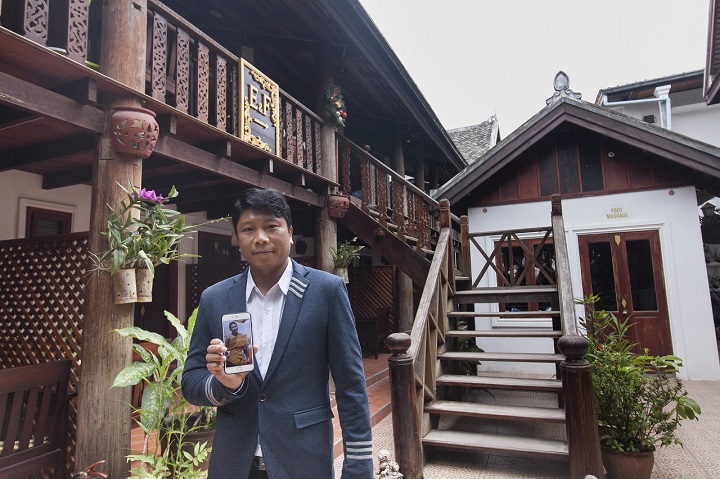
JUST like many other Laotian men who join the monastery at some point in their lives, 39-year-old Ninthala Keokhamphet served as a novice monk for six years at Wat Siphouthabath in Luang Prabang, Laos.
“I loved the temple and Buddhism so much. Every time I felt unhappy or had problems with my siblings, I will go to the temple. When the monks chant, I will run to them and listen. (They advised) us to behave and become a good person in the future,” he said.
Upon graduation from primary school when he was 14, Mr Keokhamphet entered the monastery as a novice — only to leave just before his ordination.
Although most novices only become monks when they turn 20, Mr Keokhamphet was told that he could become one at 19 through a cultural practice.
He explained: “(In our culture), when we put on a banana flower, mak pi, we (are seen as) one year older. Because pi in Laos means ‘year’. But I thought it wasn’t (the) right (time) for me to become a monk yet.”
Instead of committing his life to the monastery, Mr Keokhamphet left to further his studies.
“I did not want to continue with the Buddhist university in Vientiane and actually planned to gain a higher (level of education) as compared to my parents. I wanted to go to the United States of America or Australia,” he said.
Being in the monastery could limit such opportunities, Mr Keokhampet quipped. As he had already completed his high school education during his noviceship, he then enrolled himself in finance, vocational and teacher training colleges.
Mr Keokhamphet eventually settled down in the service industry — at the MyLaoHome Hotels and Villas in Luang Prabang — where he is now a general manager.
Easing the grief of losing a loved one
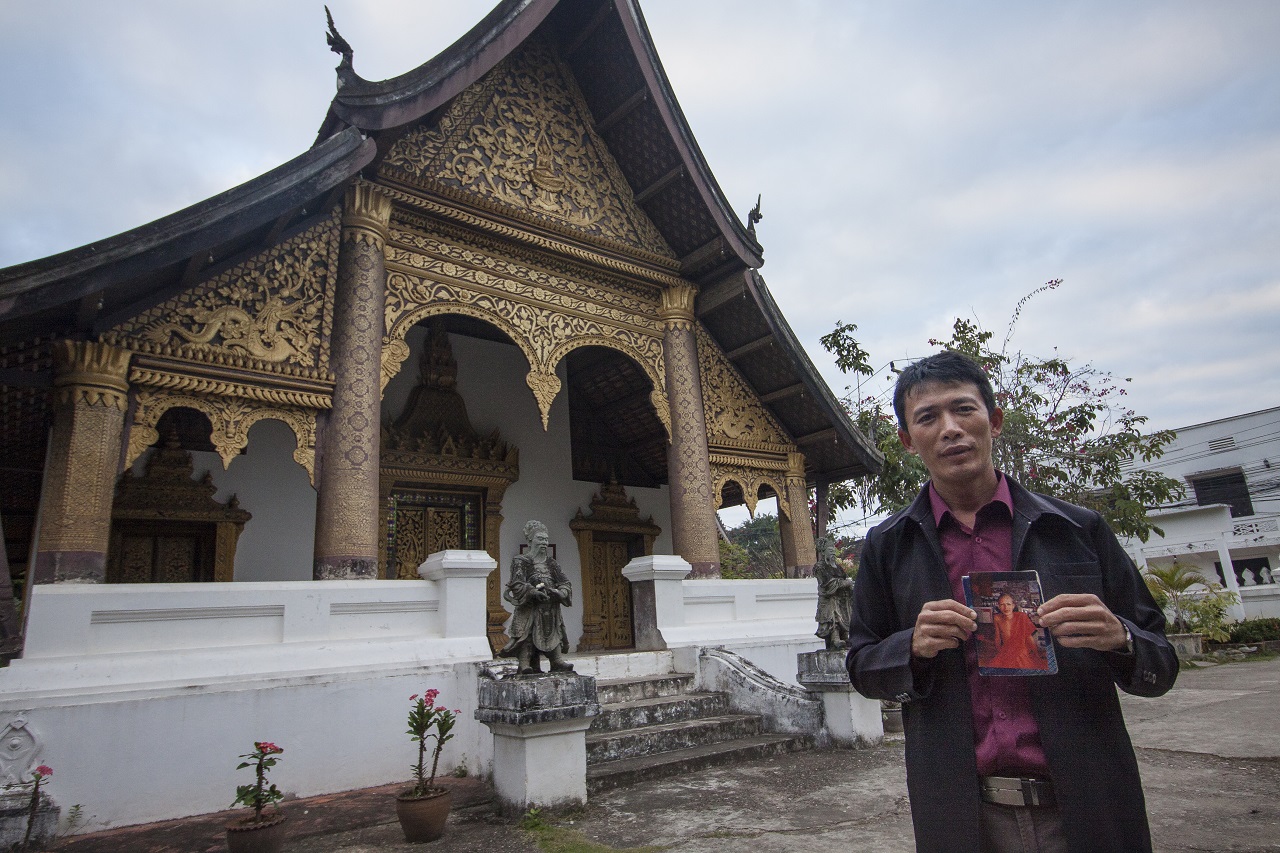
Starting out as a mean of survival, being a novice monk soon became a way to ease his grief over the loss of his brother.
At 13, Mr Bounleua Sinthavong left his family in his village to pursue a better life at Wat Choumkhong in Luang Prabang.
“When I finished primary school, I had to be a novice. We didn’t have money or the scholarship to continue secondary school. The temple was a good opportunity for education,” said Mr Sinthavong, now 35.
Living in the monastery also meant that he did not have to worry about accomodation or food, as Buddhist worshippers would provide monks with food offerings during an almsgiving ceremony known as Sai Bat or Tak Bat.
Despite his initial outlook on novicehood, his belief in Buddhism was crucial in helping him cope with the loss of his older brother.
“When he passed away, I was really sad. My mother had already passed away. My father remarried and had no time to support me. When I was sad, I prayed to Buddha and meditated. I would also buy some food and offer it to him,” he said.
After he found peace with his prayers, he threw his brother’s ashes into the Mekong river in hopes that he would be reborn in another place.
Although Mr Sinthavong did not become a monk, he is still grateful for his years as a novice.
The current English tour guide said: “Being a novice made us study and differentiate the good from the bad. I enjoyed staying in the temple and studying about Buddhism. We prayed to Buddha and meditated to have a good mind and life.”
Making sacrifices and hard decisions
But for some, living as a novice meant that there were many sacrifices to be made.
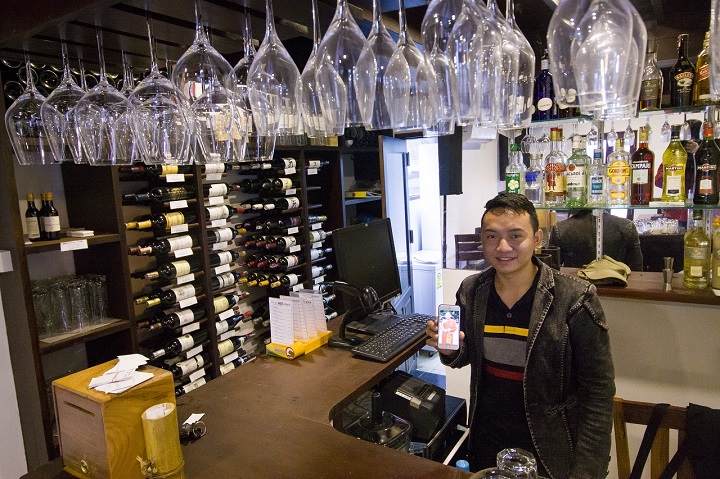
20-year-old Xaikham Somsuk, who served as a novice for two years, said that he had to give up living a normal life as there were many rules he had to abide by.
“We wake up at 4am, perform prayers until 5 or 6am, collect alms and then have breakfast. After this, we clean the temple and head for school until 12pm, when we head back to the temple for lunch. We do this every day,” Mr Somsuk said.
Novices have 300 rules and 10 big rules, which include the prohibition of touching women, having sex, running, lying and drinking, he added.
The decision to join the monastery, however, was a choice he had to make to improve the living conditions for his family and himself.
He explained: “A lot of people want to learn about being a novice and come from the countryside as they have no money to live in the town to study.
“Being a novice helps us to move into town as we can live in the temple. It is cheaper, and the school fees are also cheap.”
Despite this, after two years as a novice, Mr Somsuk decided to leave the monastery to pursue other interests.
While adapting to civilian life can be quite challenging, Mr Somsuk continues to reminisce his time at the monastery.
“Sometimes, I forget that I am not a novice anymore and still put the money on the table instead of handing it over to the female merchant,” he said.
Today, he studies electronics at the Luang Prabang Voc-Tech College, and still believes that his time at the monastery has helped him in life.
He quipped: “I enjoyed making friends with people from different backgrounds and coming together in one temple to become a family. I learnt many things as a novice — one of them is how to live my life in a good manner.” ∎

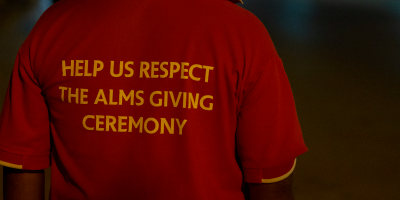
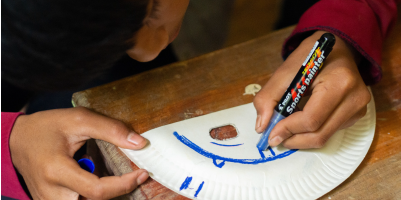
 Wee Kim Wee School
Wee Kim Wee School